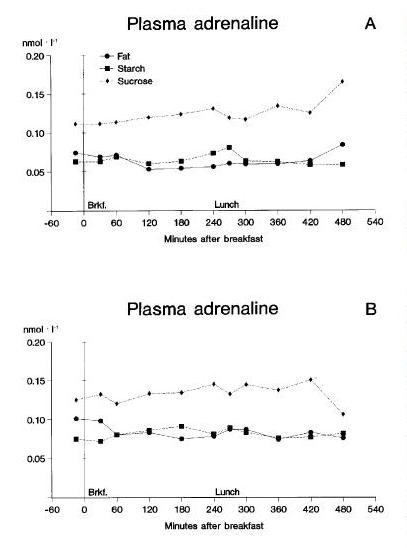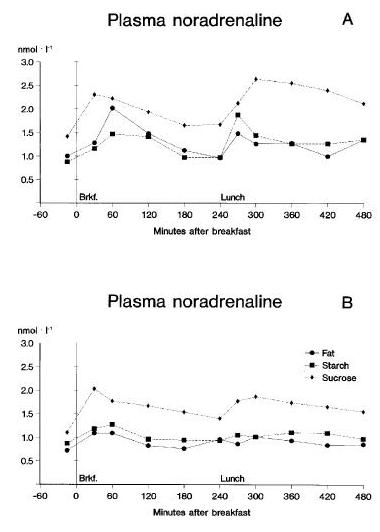Coffee
-
rTP
- Posts: 6
- https://cutt.ly/meble-kuchenne-wroclaw
- Joined: Tue 10 Apr 2012 06:47
Coffee
As a student, sometimes I feel that it's best to suspend perfect health for a day or two in the way of one cup of coffee when I have a particular essay to write. This has nothing to do with energy or needing to stay awake or the like, but rather with the neurological effects of caffeine. I've found that it increases the number of thoughts that go through my head (or, one could argue, the salience of these thoughts) allowing me to have more creative ideas (I forget the study, but it's been noted in "aha" creative moments by above-control activity spikes in the superior anterior temporal gyrus), form better conclusions, and come up with more interesting points. Lately I've probably been doing this about once every three or four weeks. I was wondering if anyone has had similar experiences and could suggest a good alternative, or if not, is there a way I should drink coffee which would make it any less impactful on my health (light/dark roast, lower temperature, consuming with(out) certain foods, etc.).
Cheers
Cheers
Re: Coffee
It stimulates the acetylcholine system.
Smoking does the same, but i dont think thats a healthy alternative
Yes, roasting is worst, so you might try a very much prolonged low-temp roasting,
though i dont know to what extend the toxins in coffee beans will be sufficiently destroyed then...
Smoking does the same, but i dont think thats a healthy alternative
Yes, roasting is worst, so you might try a very much prolonged low-temp roasting,
though i dont know to what extend the toxins in coffee beans will be sufficiently destroyed then...
Re: Coffee
Raw eggs contain choline.
Could this have similar effects ?
Could this have similar effects ?
Re: Coffee
I dont think so, because then the production of acetylcholine will still be in accordance with what the body sees as appropriate, whereas nicotine and caffeine have direct stimulatory effects (also on the bowels, for example). Almost similar to the differentiating effects on blood-nutrient levels between food and supplements.
Caffeine
Why caffeine as a supplement? You sound like panacea and his dr. pepper..overkees wrote:I would rather suggest using caffeine as a supplement, that's much safer.
Re: No food, just Soylent
caffeine boosts metabolism and can be a useful 'cheat' when one wants to increase his CP. It is a very safe and thoroughly studied substances with little downsides (I don't know any).
Re: No food, just Soylent
Exactly, it's just a stimulant that doesn't provide any nutritional benefit. I don't see the benefit of increasing your CP temporarily either. Isn't it also addictive?
http://en.wikipedia.org/wiki/Caffeine_addiction
http://en.wikipedia.org/wiki/Caffeine_addiction
Re: No food, just Soylent
How does caffeine boost metabolism ? By "stress" hormones ?caffeine boosts metabolism and can be a useful 'cheat' when one wants to increase his CP.
That is where I don't follow Ray Peat/Danny Roddy.
They are very anti-stress hormones (cortisol, epinephrine, norepinephrine) and very pro-caffeine.
But caffeine increases levels of cortisol, norepinephrine and epinephrine.
Contradiction!
I think you must either admit that those stress hormones can have positive anti inflammatory effects or you must recommend to avoid caffeine.
It is a very safe and thoroughly studied substances with little downsides (I don't know any).
Negative effects of caffeine
Caffeine can increase blood pressure in non-habitual consumers.[17]
High blood pressure is associated with an increase in strokes, and cerebral vascular disease, which in turn increase the risk of multi-infarct dementia.[17]
Caffeine may reduce control of fine motor movements (e.g., producing shaky hands)[11]
Caffeine can stimulate urination.[11]
Caffeine can increase cortisol secretion, some tolerance is developed.[18]
Caffeine can contribute to increased insomnia and sleep latency.[11]
Caffeine withdrawal produces headache, fatigue and decreased alertness.
Caffeine is addictive.[11]
High doses of caffeine (300 mg or higher) can cause anxiety.[11]
High caffeine consumption has been linked to an increase in the likelihood of experiencing auditory hallucinations. A study conducted by the La Trobe University School of Psychological Sciences revealed that as few as five cups of coffee a day could trigger the phenomenon.[19]
High caffeine consumption accelerates bone loss at the spine in elderly postmenopausal women.[20]
[edit]
Re: No food, just Soylent
If I remember correctly Ray Peat says to eat sugar with the coffee to prevent increase of these hormones.Kasper wrote: But caffeine increases levels of cortisol, norepinephrine and epinephrine.
Re: Coffee
Sugar decreases stress hormones ?If I remember correctly Ray Peat says to eat sugar with the coffee to prevent increase of these hormones


http://www.nature.com/ijo/journal/v21/n ... 00494a.pdf
Re: Coffee
Note it prevents increase, not decreases. Specifically cortisol I think he was saying.
Re: Coffee
Yes, that's right. Caffeine actually stimulates autophagy by the way.
Caffeine is not a stimulant like methylphenidate, cocaine or amphetamines. Instead it is an adaptogen. It is very good for increasing metabolism (and therefore CO2) and my experiments with caffeine support this.
I was made very scared for too much caffeine and everyone always told me how harmful red bull is. But doing more and more research leads me to conclude actually the opposite is true if used in moderation.
Caffeine addiction is a whole other problem. You can be addicted to pretty much everything. I can also be addicted to eating dates, this is a fruit and shouldn't be addictive according to RRM, but it is to me. Same goes for bananas (I always eat too much if I start) and for raw nuts.
So yes, caffeine is a medicine for low metabolism and can have extraordinary beneficial effects if used in moderation to turn the metabolism up.
Caffeine is not a stimulant like methylphenidate, cocaine or amphetamines. Instead it is an adaptogen. It is very good for increasing metabolism (and therefore CO2) and my experiments with caffeine support this.
I was made very scared for too much caffeine and everyone always told me how harmful red bull is. But doing more and more research leads me to conclude actually the opposite is true if used in moderation.
Caffeine addiction is a whole other problem. You can be addicted to pretty much everything. I can also be addicted to eating dates, this is a fruit and shouldn't be addictive according to RRM, but it is to me. Same goes for bananas (I always eat too much if I start) and for raw nuts.
So yes, caffeine is a medicine for low metabolism and can have extraordinary beneficial effects if used in moderation to turn the metabolism up.
Re: Coffee
Never heard of this. Any reference ?Yes, that's right. Caffeine actually stimulates autophagy by the way.
Caffeine is not a stimulant like methylphenidate, cocaine or amphetamines. Instead it is an adaptogen. It is very good for increasing metabolism (and therefore CO2) and my experiments with caffeine support this.
Re: Coffee
Reference for what part exactly? That it increases metabolism? Or the autophagy claim?
That it's an adaptogen instead of a stimulant will rather be a discussion.
That it's an adaptogen instead of a stimulant will rather be a discussion.
Re: Coffee
As with all drugs, there are beneficial and adverse effects.
"Coffee consumption has been associated with a lower risk of type 2 diabetes" Natella F et al
"There seems to be a consistent protective effect of caffeine intake on Parkinson's disease incidence". Palacios N et al
"Caffeine has acute and prophylactic therapeutic effects on hypnic headache disorders" Holle D et al
"The influence of caffeine (a kind of alkaloid) depends on individual metabolism (eg slowed down during pregnancy). Moderate caffeine intake by healthy adults at a dose level of 400 mg a day is not associated with adverse effects. Excessive caffeine consumption can cause negative health consequences such as psychomotor agitation, insomnia, headache, gastrointestinal complaints".Wierzejska R
"(review of 12 studies) The intake of coffee is contributed significantly to the increase in total cholesterol, LDL-cholesterol and triglyceride, and the changes were related to the level of intake". Cai L et al
Fifteen kinds of metabolites of caffeine have been found, influencing the enzymes CYP1A2, CYP2A6, N-acetyltransferase and xanthine oxidase. Chen Y et al Josse AR et al Amin N et al Full Free Text, which metabolize drugs and activate or detoxify carcinogenic compounds (and influence blood pressure Guessous I et al).
"Caffeine intake is associated with increased flow-mediated dilatation and fibrinolysis" (parameters in cardiovascular disease).Montagnana M et al
"eight studies all showed a positive association between caffeine and anxiogenic effects and/or panic disorder" Villarim MM et al
Because caffeine has various pharmaceutic properties, to me it seems unwise to expose yourself to it on a regular basis.
"Coffee consumption has been associated with a lower risk of type 2 diabetes" Natella F et al
"There seems to be a consistent protective effect of caffeine intake on Parkinson's disease incidence". Palacios N et al
"Caffeine has acute and prophylactic therapeutic effects on hypnic headache disorders" Holle D et al
"The influence of caffeine (a kind of alkaloid) depends on individual metabolism (eg slowed down during pregnancy). Moderate caffeine intake by healthy adults at a dose level of 400 mg a day is not associated with adverse effects. Excessive caffeine consumption can cause negative health consequences such as psychomotor agitation, insomnia, headache, gastrointestinal complaints".Wierzejska R
"(review of 12 studies) The intake of coffee is contributed significantly to the increase in total cholesterol, LDL-cholesterol and triglyceride, and the changes were related to the level of intake". Cai L et al
Fifteen kinds of metabolites of caffeine have been found, influencing the enzymes CYP1A2, CYP2A6, N-acetyltransferase and xanthine oxidase. Chen Y et al Josse AR et al Amin N et al Full Free Text, which metabolize drugs and activate or detoxify carcinogenic compounds (and influence blood pressure Guessous I et al).
"Caffeine intake is associated with increased flow-mediated dilatation and fibrinolysis" (parameters in cardiovascular disease).Montagnana M et al
"eight studies all showed a positive association between caffeine and anxiogenic effects and/or panic disorder" Villarim MM et al
Because caffeine has various pharmaceutic properties, to me it seems unwise to expose yourself to it on a regular basis.
